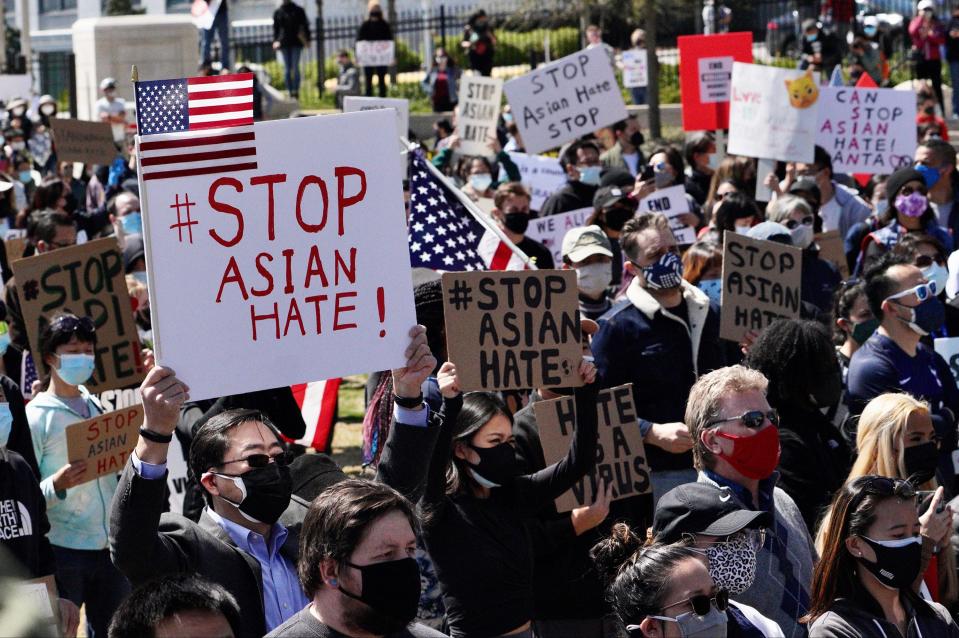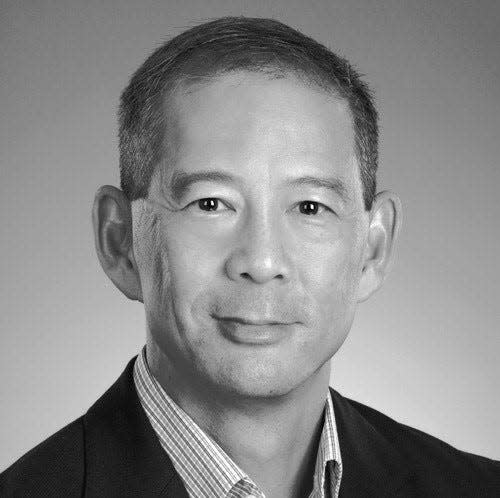Two years after the Atlanta spa shootings, AAPI community continues fight to stop hate
Two years ago, a gunman killed eight people at three spas in Cherokee and Fulton counties in the Atlanta area. Those who lost their lives were family members, community members, business owners and providers. Some were immigrants who came to the United States hoping to live the American dream and build new lives for themselves and their families. Six were women of Asian descent.
When we heard the news of the shooting, it felt as if our entire community was targeted. The shock, and pain, and anger were palpable far beyond Atlanta. The onset of COVID-19 and the racist rhetoric from public officials seemed to unleash a new wave of hate directed at Asians and Asian Americans.
Anti-Asian hate crimes were rapidly increasing, with each attack causing Asian Americans to feel less safe in their own neighborhoods and cities. Daily walks, morning commutes and everyday tasks had to be meticulously planned. Everyone felt like a target and the community was raw – still mourning grandfather Vicha Ratanapakdee, who that January had been senselessly and violently killed across the country in San Francisco.
Opinions in your inbox: Get exclusive access to our columnists and the best of our columns
Asian Americans and Pacific Islanders moved from outrage to action
The cumulative and collective pain leading up to the spa shootings is what made it a true breaking point – a galvanizing moment that mobilized us. We moved from outrage to action. The pits in our stomachs hardened into resolve.
The movement to stop hate against Asian Americans and Pacific Islanders found new urgency, attention and allies. In the days and weeks after the shootings, AAPI communities, organizations and leaders came together to remember the victims as people rather than statistics.
Hard workers, dedicated mothers, striving immigrants: These are the 8 people killed in the Atlanta area spa shootings
The Asian American Journalists Association posted a guide on how to pronounce the victims’ names and held newsrooms accountable for telling the story with dignity. Community leaders organized vigils and rallies across our country calling for an end to anti-Asian violence and hate. Asian American youth showed up to condemn the violence. Corporations stepped up their commitments to support their AAPI employees. People talked about the shootings. Our country’s leaders offered their support and spurred promising action.
In 2021, just two months after the Atlanta spa shootings, President Joe Biden signed the COVID-19 Hate Crimes Act into law. This legislation made the reporting of hate crimes more accessible for local and state authorities and provided resources for reporting to be done in additional languages.

Fear remains in AAPI communities
Yet despite all of this effort, today, the fear remains in our communities. We continue to experience violence, hatred and prejudice. Slurs. Assaults. Shootings.
Over the past two years, despite progress on many fronts of our movement, attacks against the AAPI community have not slowed down. Stop AAPI Hate recorded nearly 11,500 hate incidents against Asian Americans and Pacific Islanders in the United States since March 2020.
Violence must end: Monterey Park mass shooting breaks promise of Lunar New Year for Asian Americans
AAPI community can no longer be silent on gun laws: We must confront threat on our community
Just as hard to understand is that many of our fellow Americans are not aware of the violence. Nearly a third of Americans are unaware that attacks against Asian Americans are increasing.
These attacks and incidents represent the most horrifying manifestations of Asian stereotypes and anti-Asian prejudice. They reveal the deeper work needed to change the narrative about Asian Americans and Pacific Islanders in our country and culture.
Opinion alerts: Get columns from your favorite columnists + expert analysis on top issues, delivered straight to your device through the USA TODAY app. Don't have the app? Download it for free from your app store.
For example, it’s no coincidence that the targets of the Atlanta spa shootings were women. AAPI women encounter fetishization, objectification and hypersexualization due to biased views and representation in media. According to the 2022 STAATUS Index, Americans still primarily see Asian American women portrayed in stereotypical and negative roles in TV and movies, most often as geishas or sex workers, martial artists and as maids or cleaners.
Intersection of racism and misogyny: Asian women continue to be degraded, fetishized and victimized
These inaccurate representations of Asian American women only add to existing misconceptions and fuel violence that AAPI women face.
And even in a moment when we are celebrating an Asian actress making history at the Oscars and making progress for the community, we are also reminded that there is still much work to be done. We must reverse harmful narratives about Asian Americans and Pacific Islanders in mainstream media – and celebrate the beauty of our diverse, rich cultures. We must educate others about our culture and history, and the contributions that AAPIs have and continue to make to our country.
AAPI pride: Asian, Pacific Islander heritage helps lift America to what it must be
Recognize what we can do: Why Michelle Yeoh's historic Oscar win feels so big for Asian Americans like me
We must raise our voices and advocate for policies that include and reflect our community – and all communities.
Organizations like The Asian American Foundation and Stop AAPI Hate have worked to draw attention to hate crimes, educate the public and advocate for more action against violence in the AAPI community. The resiliency of our community gives me hope for a future where we are free of discrimination and hatred.

Movements are hard-won and all too easily lost. But I believe in the power of reflecting on anniversaries such as this one to remind us why we’re in this fight. Today and every day, we honor the victims of the Atlanta spa shootings. We honor their dreams and hopes for the future, and strive to create one that prevents a horrific event like this from ever happening again.
On this terrible anniversary, isn’t it time that we stop the hate?
Norman Chen is the chief executive officer of The Asian American Foundation. Prior to his appointment at TAAF, Chen co-founded the nonprofit Leading Asian Americans to Unite for Change (LAAUNCH) and helped to create a landmark study, the STAATUS Index, of American attitudes toward Asian Americans.
You can read diverse opinions from our Board of Contributors and other writers on the Opinion front page, on Twitter @usatodayopinion and in our daily Opinion newsletter. To respond to a column, submit a comment to letters@usatoday.com.
This article originally appeared on USA TODAY: After 2021 Atlanta spa shootings, AAPI hate continues. We must end it.

